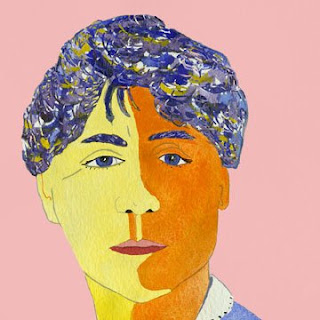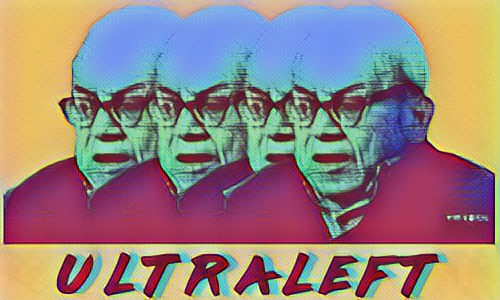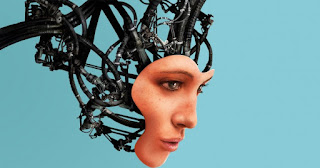Prophet of Management
Most social workers and Americans, generally, are hard-pressed to remember Mary Parker Follett either as a social worker or as one of the nation’s most astute commentators on democracy. Follett saw democracy in holistic terms, terms that moved beyond the indirect measures and practices of representative government to the direct practice of democracy. Direct democracy for Follett involved a citizen’s willingness, responsibility, and capacity to self-organize, act, and creatively solve complex problems. Direct democracy expands the power and capacity of citizens and society as a whole for self-regulation through individual and collective acts that regenerate society itself.
What Mary Parker Follett puts forward is that democracy is a method, a scientific technique of evolving the will of the people. But with the fact in mind that the individual is the basis of self-governance, although the individual exists within infinite social relations. The pluralists have proposed diversity but have not settled on what ties it all together. In this way the new individualism emerges as that which is synthesis of individual and society. The essence of democracy is its centripetal force not its centrifugal force. The essence of democracy is an educated and responsible citizenship evolving common ideas and willing its own social life.
Envisioning a direct democracy
Mary Parker Follett created at the outset the 20th century a philosophic and theoretical framework for a direct democracy. She saw it as a natural outgrowth of the Progressive Era. Peter Drucker observed that Follett’s radical inside-out and bottom-up approach to change, leadership, management, and citizenship in the face of a rising state made her little known for decades following her death in 1933.
A direct democracy, as Follett imagined it, engages and grows the aspirations and the power of creative individuals for aligned collective action. But Follett sought to merge two goals of good governance: efficient management by experts and direct control of rule by the people. In this sense she advocated first for a broad based educated citizenry that would be empowered beyond the technicalities of “ballot box” democracy. Instead she favored the integration of aristocracy into democracy. The citizens would be active creators and serve as friends and guides to the people. An egalitarian aristocracy. This brings to mind the model of direct technocracy.
Leadership
Follett’s conception of leadership plays off her holistic vision of the constituent elements of a democratic society. Again, just as we are all citizens that constitute the state, we are all leaders. Follett’s vision of leadership focuses attention to power and authority in the individual, their values, rights, and responsibilities. Follett does so to counter the soft despotism of our times, where we find ourselves more led than free, more consumers and clients than citizens, more fearful than engaged, aspirational, and heroic.
Soft despotism as Follett observed is reinforced by our overly hierarchical conception and reverence for expertise. It is a conception wherein we turn over our power and authority to others in the belief that they will always act in our interest. “The rule of the beneficent despot, the expert, and a muddled, befogged people—our troubles will be over when we get enough Intelligence Bureaus in Washington and enough scientific expertise in our Universities, enough specialists in our state and local governments … then all life would become fair and beautiful..” Such a mindset undermines citizenship because citizens are the final authority in a democracy.
Follett’s approach to leadership holds that it is every person’s responsibility to both lead and follow in support of shared vision and values. Albie Davis describes this as a leader’s ability and the wisdom to discern when it is better to lead or follow as one of “sense making.” When does it make sense to lead from behind? Effective management is a participatory, inclusive and nonhierarchical process—not a command and control, direction giving process.
Community
In both The New State (1918) and Creative Experience (1924), Follett wrote about the centrality of community for a direct democracy. According to Follett, community is the macro setting where the power is “grown” by individuals in relationships with each other. Community is where democracy is realized. To underscore her thinking, Follett (1919) wrote a short piece called “Community Is a Process.” Here she thought of community as an ecological system, much like a garden, in which the various elements and citizens interact with each other, tend to each other, in relational processes to create something beautiful. Community is a creatively lived experience. It is not an abstract training process. A strong community is not the product of interest groups competing with each other for the spoils of government. Rather community is the starting point for an inclusive federalism—local communities, states, and the federal government together—a dynamic democratic organism.
The foundation of direct democracy was and is again for Follett, the community and all its citizens—laborers, intellectuals, politicians, businessmen and women, and everyone else in between. “Without legitimacy working itself up from the local associations of citizens practicing self-government, there could be no legitimacy.” Community is the outgrowth of a process of relationship building and inclusive engagement. We become human beings through constantly interacting with others—not “hiding” from or holding power over them—particularly those who are different from us.
The new citizen-centric state
In summary, Follett’s new state is an inclusive dynamic participatory state. It is achieved through the direct engagement of its citizens in a process of asymmetrical design, experimentation, community and system building. The process begins, one individual at a time. It blurs the distinction between us and them, politicians, leaders, managers, capitalists, and citizens. It recognizes that each has a special and unique responsibility to contribute to those purposes and ends whose achievement none can achieve fully on their own.
“It rests on the solid assumption that this is a man-made not a machine-made world, that men and women are capable of constructing their own life, and that not upon socialism or any rule or any order or any plan or any utopia can we rest our hearts, but only on the force of a united and creative citizenship.” -Mary Parker Follett




Comments
Post a Comment